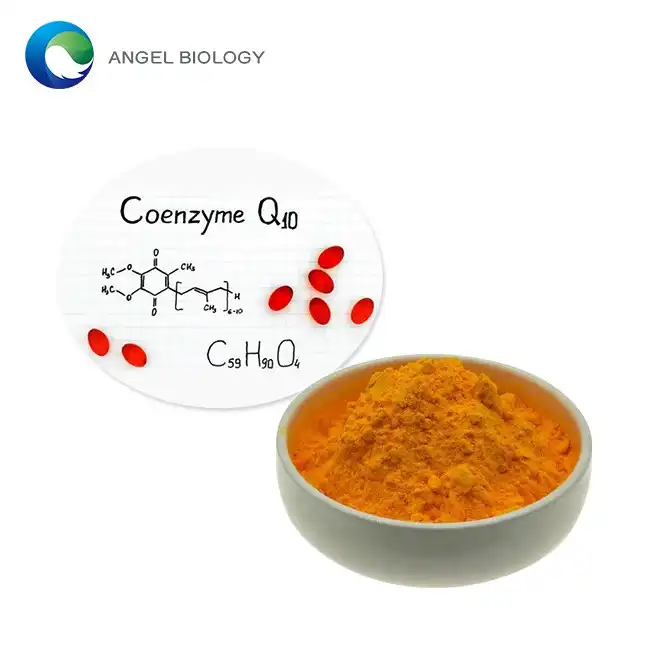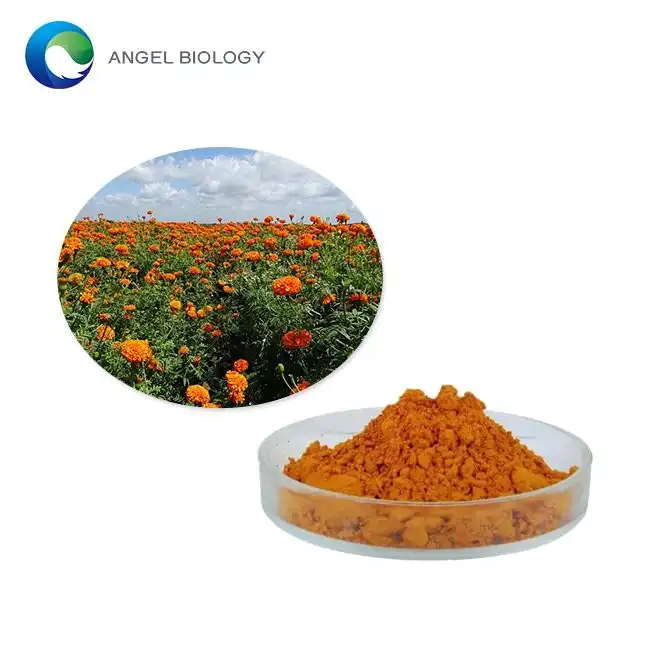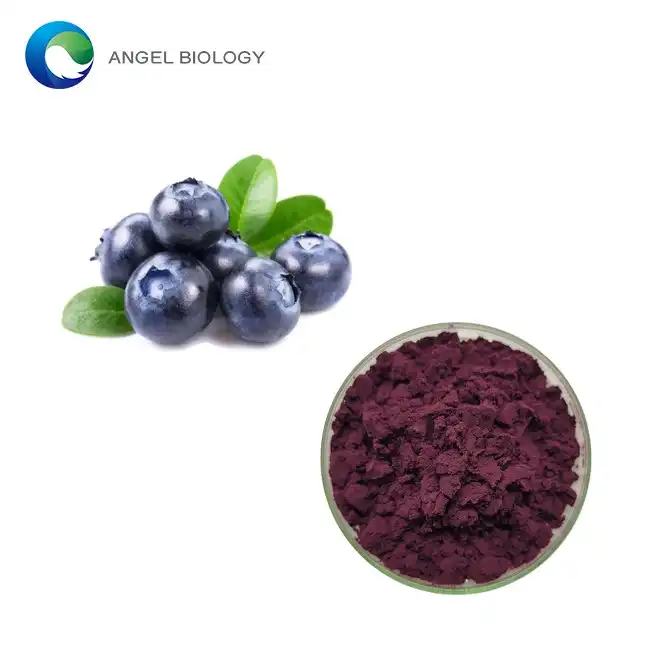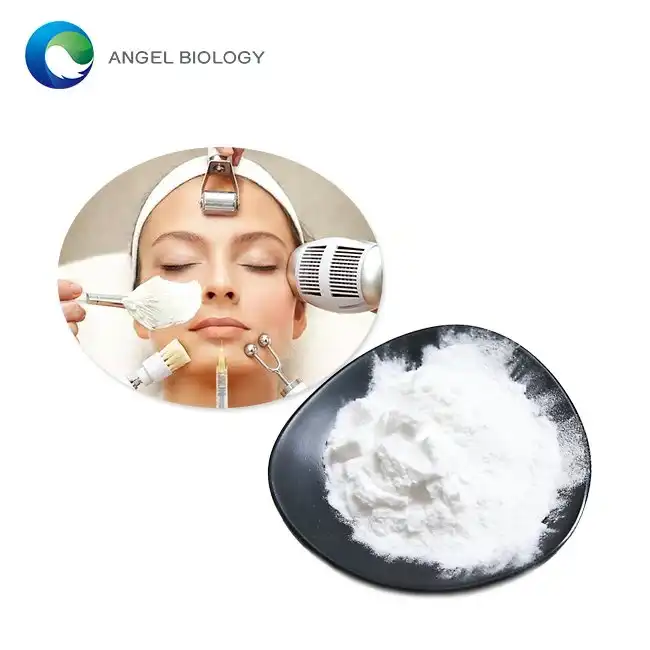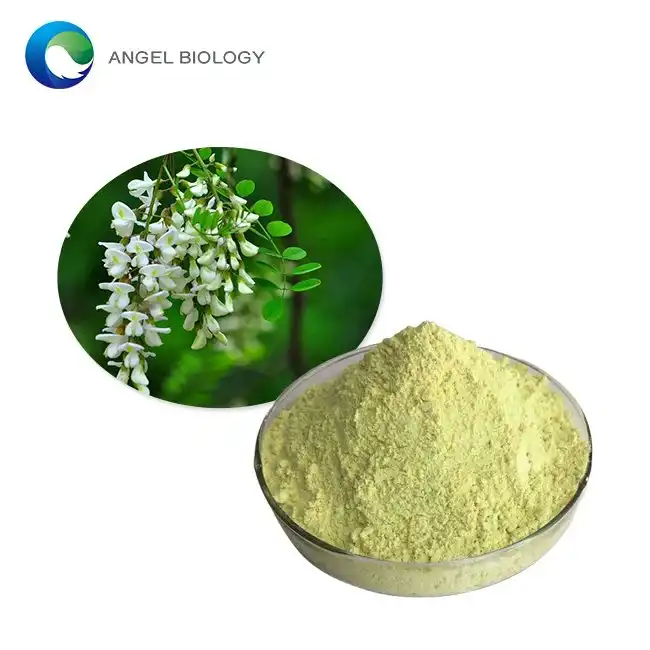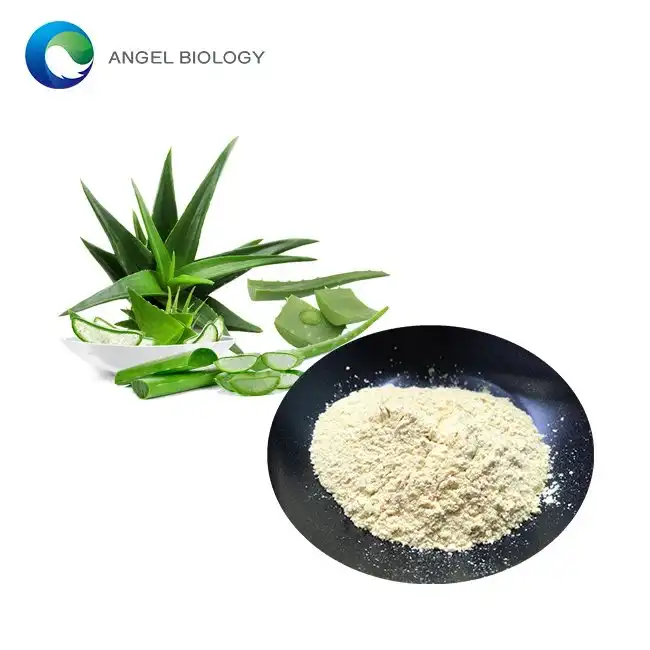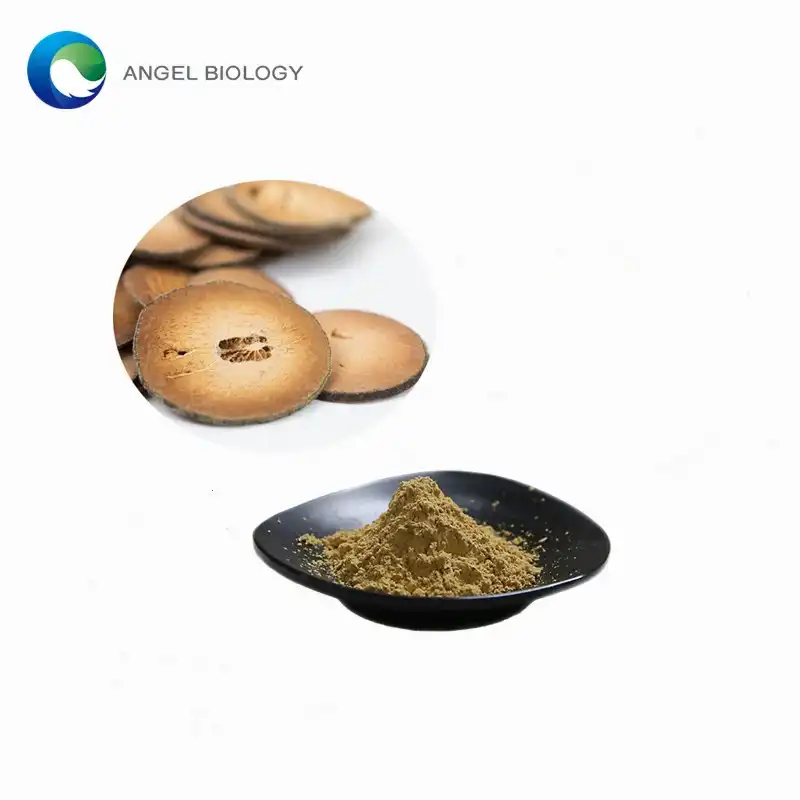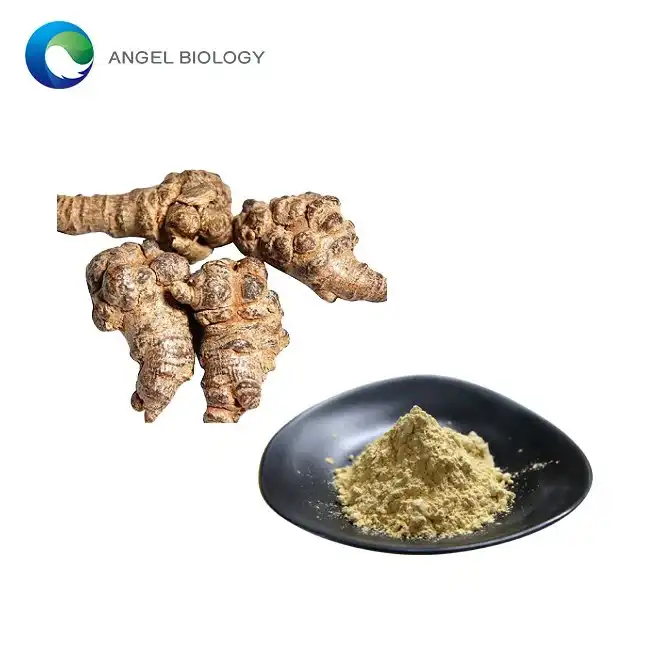Is it Good to Take Lutein Powder Everyday?
Lutein, a powerful carotenoid found naturally in various foods, has gained significant attention in the health and wellness community for its potential benefits, particularly for eye health. As dietary supplements continue to grow in popularity, many individuals are curious about whether taking lutein powder daily could be a beneficial addition to their health regimen. This comprehensive exploration will delve into the science behind lutein, its potential advantages, recommended dosages, and considerations for different age groups.
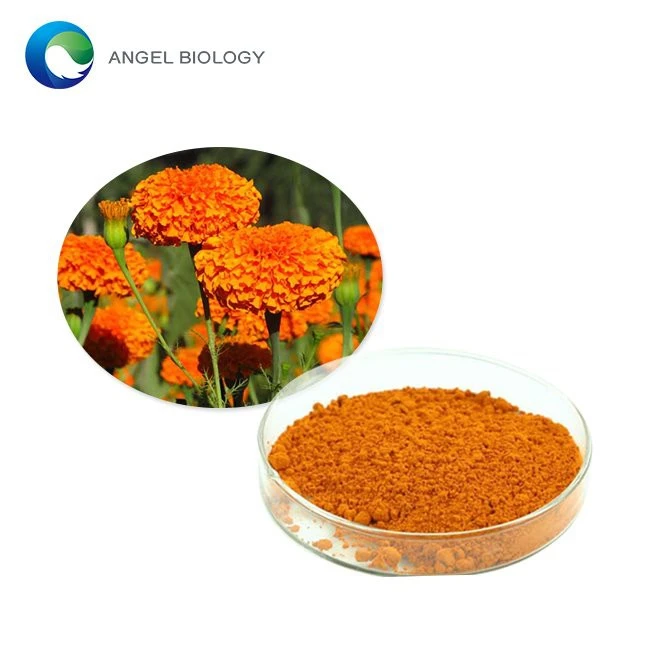
Lutein Powder
Other names: Luteolin, Xanthophyll, Marigold extract, Tagetes erecta flower extract
Plant source: Tagetes erecta L
Specification: 80%
Part used: Flower
Test method: UV
CAS No.: 127-40-2
Molecular formula: C40H56O2
EINECS No.: 204-840-0
Melting point: 195℃
Density: 0.9944 (rough estimate)
Solubility: Slightly soluble in Chloroform and Dichloromethane
PH: 14.61±0.70(Predicted)
Stability: Light Sensitive, Temperature Sensitive
Appearance: Orange to yellow powder
Certifications: ISO9001, Kosher,Halal, FDA, IFEAT
Packing Size: 25kg/drum
Delivery Terms: EXW, FOB, CIP, CIF, DAP
Transportation: Courier, Air, Ocean
Payment Terms: T/T preferred
Delivery: Ready stock, Prompt and Secure Shipment
Free Sample: Available
OEM/ODM: Available
MOQ: 1kg
Discount for large orders
Not for Private Person Sale
Send Inquiry
Can Lutein Powder Really Improve Your Eye Health?
The human eye is a complex organ constantly exposed to various environmental stressors, including blue light from digital devices and harmful UV radiation. Lutein has emerged as a potentially crucial nutrient in protecting and maintaining optimal eye health. Scientific research has consistently highlighted lutein's remarkable properties as a natural antioxidant and its unique ability to filter harmful high-energy light waves.
Numerous studies have demonstrated lutein's significant role in supporting macular health, which is critical for central vision. The macula, a small area in the retina responsible for detailed vision, contains a high concentration of lutein. As we age, the natural lutein levels in our eyes can decline, potentially increasing the risk of age-related eye conditions such as macular degeneration.
Research published in prominent medical journals has shown that lutein acts as a protective shield for eye tissues. It works by forming a protective layer in the macula, filtering out potentially damaging blue light and reducing oxidative stress. This mechanism is particularly important in our modern digital age, where prolonged exposure to screens and artificial lighting has become increasingly common.
Clinical trials have provided compelling evidence of lutein's benefits. A comprehensive study published in the Archives of Ophthalmology found that individuals with higher lutein intake had a significantly lower risk of developing advanced age-related macular degeneration. Another research conducted by the National Eye Institute revealed that lutein could potentially slow the progression of existing eye conditions and support overall visual function.
Moreover, lutein's benefits extend beyond immediate eye protection. Emerging research suggests that this powerful carotenoid might have neuroprotective properties, potentially supporting cognitive function and brain health. Some studies indicate that lutein can accumulate in brain tissues, potentially offering protection against cognitive decline and supporting mental clarity.
For individuals considering lutein powder as a dietary supplement, the evidence suggests a promising avenue for proactive eye and potentially brain health maintenance. However, it's crucial to approach supplementation with an informed and balanced perspective, understanding that lutein works best as part of a comprehensive approach to nutrition and wellness.

How Much Lutein Powder Should You Take Daily?
Determining the optimal daily intake of lutein powder requires careful consideration of multiple factors, including age, overall health, dietary habits, and specific health goals. While there is no universally standardized recommendation, extensive research and expert opinions provide valuable guidance for potential supplementation.
Most nutritional experts and scientific studies suggest a daily lutein intake ranging between 6 to 20 milligrams. This range is based on numerous clinical trials and observational studies that have demonstrated potential health benefits within these dosage parameters. However, it's important to recognize that individual needs can vary significantly.
The average diet typically provides approximately 1-2 milligrams of lutein daily, primarily through consuming green leafy vegetables, corn, and certain fruits. For individuals seeking more targeted supplementation, lutein powder offers a concentrated and convenient method of increasing intake. Dietary sources like spinach, kale, and Swiss chard remain excellent natural alternatives, but supplementation can bridge nutritional gaps.
Factors influencing optimal lutein dosage include age, lifestyle, and specific health considerations. Younger individuals might require lower doses, while older adults or those with existing eye health concerns might benefit from higher supplementation levels. People with sedentary lifestyles or those with significant screen time might also consider slightly higher lutein intake.
Absorption and bioavailability are crucial considerations when selecting lutein powder. Some formulations combine lutein with zeaxanthin, another beneficial carotenoid, potentially enhancing overall absorption and effectiveness. Additionally, consuming lutein with healthy fats can improve its absorption, as lutein is fat-soluble.
Professional healthcare providers recommend starting with lower doses and gradually adjusting based on individual response and comprehensive health assessments. Regular eye examinations and consultations with healthcare professionals can help personalize lutein supplementation strategies.
Is Lutein Powder Beneficial for Different Age Groups?
Lutein's potential benefits span across various life stages, making it a versatile nutritional supplement with age-specific advantages. Understanding how lutein might support different age groups provides a comprehensive perspective on its potential role in maintaining overall health.
Children and Adolescents
While research on lutein supplementation in younger populations is ongoing, emerging evidence suggests potential cognitive and visual development benefits. The rapid brain development during childhood and adolescence makes lutein an intriguing nutritional component. Some studies indicate that lutein might support learning capabilities, visual processing speed, and overall cognitive performance.
Children engaged in extensive digital learning or spending significant time with electronic devices might particularly benefit from lutein's protective properties. The blue light filtering mechanism could potentially mitigate potential long-term eye strain and support visual health during critical developmental years.
Young Adults
For young adults, lutein powder represents a proactive approach to maintaining eye health and potentially supporting cognitive function. As professional and academic environments become increasingly digital, protecting eye health becomes paramount. Lutein's antioxidant properties can help counteract the potential oxidative stress associated with prolonged screen time and urban environmental challenges.
Athletes and fitness enthusiasts might find additional benefits in lutein supplementation. Some research suggests that lutein could support recovery processes and potentially enhance visual-motor coordination, which can be advantageous in various sports and physical activities.
#Middle-Aged Individuals
Middle-aged populations often experience initial signs of age-related visual changes. Lutein supplementation during this life stage can serve as a preventive strategy against potential eye health deterioration. The antioxidant and protective properties become increasingly relevant as natural cellular repair mechanisms start to slow down.
potential eye health deterioration. The antioxidant and protective properties become increasingly relevant as natural cellular repair mechanisms start to slow down.
Professional environments demanding high visual acuity and extended screen time make lutein particularly relevant for this age group. By potentially supporting macular health and reducing oxidative stress, lutein powder could be a valuable addition to a comprehensive wellness strategy.
Older Adults
For older adults, lutein's potential becomes even more significant. Age-related macular degeneration (AMD) and other eye health concerns become more prevalent, making nutritional interventions crucial. Multiple clinical studies have demonstrated lutein's potential in slowing AMD progression and supporting overall visual function.
Beyond eye health, emerging research explores lutein's potential neuroprotective properties. Some studies suggest that lutein accumulation in brain tissues might support cognitive function and potentially mitigate age-related cognitive decline.
Conclusion
Lutein powder represents a fascinating nutritional supplement with potential benefits spanning multiple health domains. While individual experiences may vary, the scientific evidence suggests promising avenues for supporting eye health, cognitive function, and overall wellness.
Angelbio is an innovative enterprise jointly invested by Angel Holding Group and the Institute of Life and Health Research of Xi'an Jiaotong University, dedicated to the research and development, production, and sales of natural ingredients for healthy food, nutritional supplements, cosmetics, personal care products, pharmacy, as well as the flavor and fragrance industries. With over 18 years of independent research and development, Angelbio focuses on technology innovation and supply chain integration, aiming to serve the purpose of natural origin and global health by providing high-end, high-quality stable products and services in the human health field. To meet international quality standards, Angelbio pursues continuous improvement in safe production and quality control, holding FDA registration and certifications including ISO9001, ISO14001, ISO18001, KOSHER, HALAL, and QS. Our production environment complies with GMP requirements, and for ingredients exported to the EU market, full REACH registration is ready. Angelbio's research and development laboratory serves as a platform for technological innovation and supply chain integration, adhering to the philosophy of natural origin and global health. As a trusted China Lutein Powder manufacturer, our products are highly esteemed by customers. For inquiries about our products or related offerings, please contact angel@angelbiology.com for wholehearted service.
References:
1. Age-Related Eye Disease Study Research Group. (2001). Archives of Ophthalmology, 119(10), 1417-1436.
2. Koushan, K., et al. (2013). Nutrients, 5(4), 1169-1185.
3. Stringham, J. M., & Hammond, B. R. (2008). Optometry and Vision Science, 85(4), 285-292.
4. Bernstein, P. S., et al. (2016). Progress in Retinal and Eye Research, 50, 34-66.
5. Johnson, E. J. (2012). Advances in Nutrition, 3(4), 526-533.
6. Moeller, S. M., et al. (2008). Journal of the American College of Nutrition, 27(2), 225-233.
7. Ma, L., et al. (2009). Investigative Ophthalmology & Visual Science, 50(7), 3079-3085.
8. Vishwanathan, R., et al. (2014). Nutrients, 6(5), 1848-1863.
9. Kesse-Guyot, E., et al. (2014). Journal of Nutrition, 144(5), cepc007.
10. Craft, N. E., et al. (2004). Journal of Nutrition, 134(12), 3225-3228.



